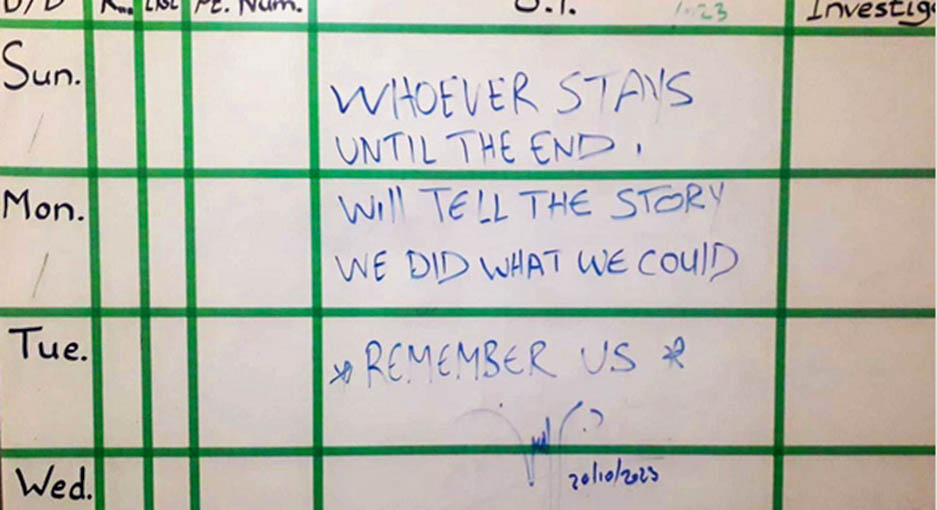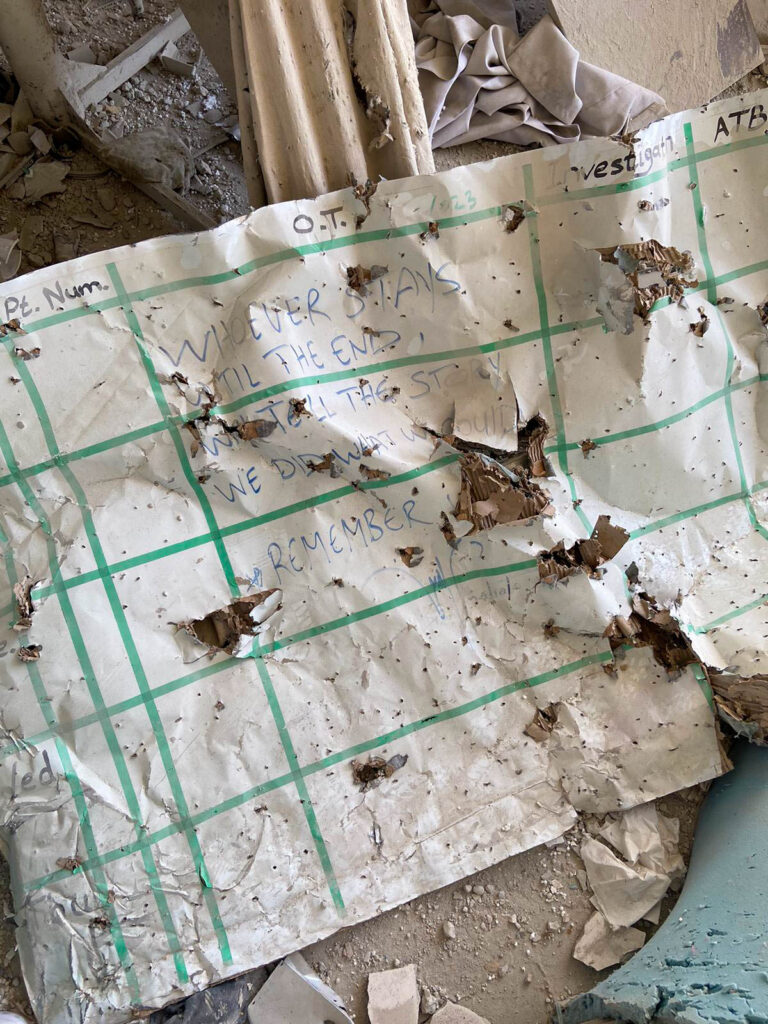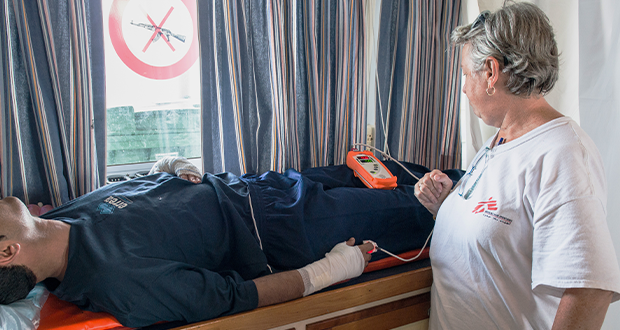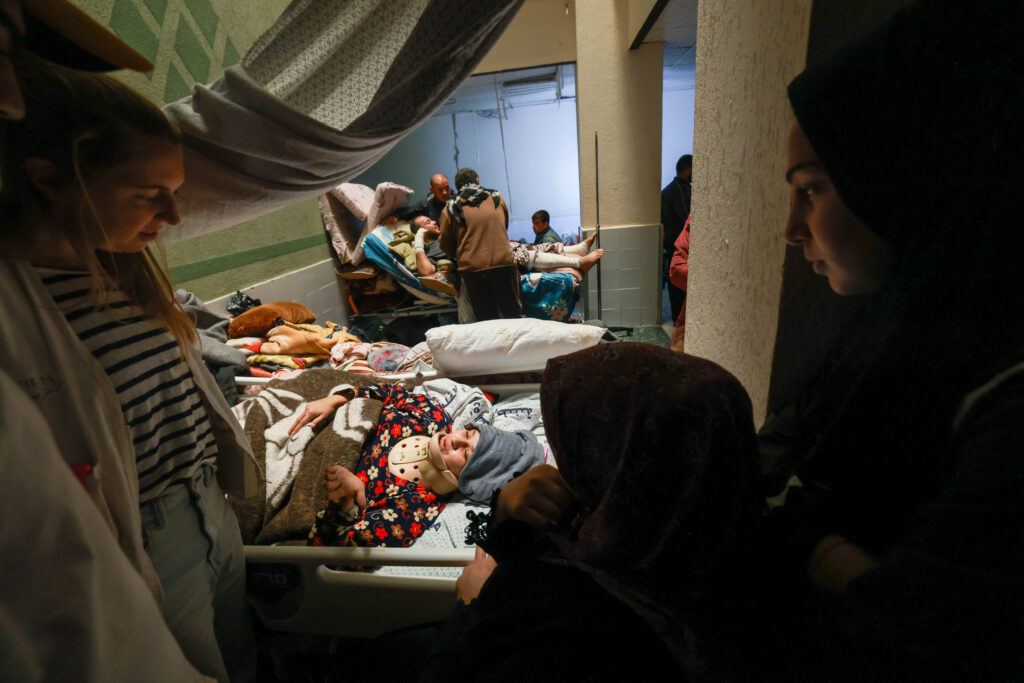Tasmanian registered nurse and aid worker Carol Nagy has recently returned from a six-week stint as an emergency medical coordinator with Médecins Sans Frontières/Doctors Without Borders (MSF) for their Palestine medical program.
She has worked with MSF for 23 years and in the Occupied Palestinian Territory since 2010.
Here Carol recounts her recent stint to Nursing Review, saying the situation was "much worse than it's ever been".
"This time things are very different.
Gaza has been under blockade by Israel for decades, and Israel controls everything and everyone that enters and exits Gaza, including supplies such as fuel, electricity, water, food, and medicines. The people in Gaza have had to adapt to living without many essentials for life, especially adequate medical care.
Now, very limited transportation of supplies is being allowed to enter from Israel. No proper medical treatment is available, and only 12 out of the 36 hospitals that used to exist in Gaza are functional to a small degree but have little or no medical supplies.
In the past five months, healthcare facilities have been subjected to evacuation orders and have been repeatedly attacked, besieged, and raided. Medical staff and patients have been arrested, abused, and killed while caring for patients. This includes five of our own staff from MSF and several family members of our MSF staff.
We had been working in Al Aqsa Hospital in the middle area of Gaza until we were forced to evacuate the hospital back in December due to it becoming too unsafe to remain.
There were more than 600 patients at the hospital and only 250 beds at this time; you could not walk across the floors for patients. People also sought the hospital grounds as a safe area, with tens of thousands sheltering there.
All who could have left headed to Rafah in the south. The staff that remained to care for those who could not be moved faced extreme conditions as the hospital was bombed the day after the evacuation notice was given, killing several and injuring more than 140 people.
We have now been able to return to Al Aqsa Hospital and continue our work there, mainly trauma care, surgery, physiotherapy, and mental health care.
While working in a hospital, our international and some of our Palestinian staff live 24/7 in the hospital, so it is quite intense. You are always alert and aware of imminent danger, and sleep is sporadic. Our colleagues would find food for us even though it is risky for them to leave the hospital compound.
Communication is also often not working, with the internet connection being incredibly unreliable. People have to go to rooftops, and even then, the rooftops can be blocked for days. There is only 2G available, so it’s not easy.
The international team usually spend a month in Gaza and always feel very bad about leaving our Palestinian workmates, who often don’t have much opportunity to leave Gaza.
Hospitals continue to be targeted. In one of the latest instances, Nasser Hospital, which is the biggest hospital in South Gaza, was besieged for weeks. After a shell struck the orthopaedic department, killing and wounding several people, MSF staff were forced to flee and leave patients behind. One MSF staff member was detained at a checkpoint by Israeli forces while trying to leave the compound. We reiterate our call to Israeli authorities to share information about his whereabouts and to protect his well-being and dignity.
Medical staff who remain inside the hospital describe a horrific situation where patients are trapped with limited food and no electricity or running water.
One of our staff members who recently worked inside Gaza told us, “Every evening, I say goodbye to my Palestinian colleagues. Every morning, I am afraid I won’t see them in the next morning's meeting. Every day it feels like we are increasingly running out of options – to treat the wounded, to get the medical supplies, or provide the water that people desperately need.”
In the late evening of 20 February, an Israeli tank shelled an MSF shelter in Al-Mawasi, killing two family members of an MSF staff and injuring seven others. Israeli forces had been clearly informed of the precise location of the shelter, underscoring that nowhere in Gaza is safe and that deconfliction mechanisms were unreliable.
Humanitarian responders have no safety assurances to conduct their work, and their convoys are being blocked and severely delayed at checkpoints, making it impossible to reach people in desperate need.
North Gaza has been largely cut off from assistance for months, leaving people trapped and with no choice but to attempt to survive on minuscule amounts of food, water, and medical supplies. Entire neighbourhoods have been bombed and destroyed.
Although MSF has limited visibility of the overall humanitarian and health situation in the north, a few of our staff members remain trapped there.
According to one of our nurses, the situation in the north of Gaza is catastrophic and getting worse.
“There are no hospitals for even basic treatment, and the pharmacies are empty of drugs. My children have been sick for weeks because of the lack of clean water and proper food, and they are getting worse.”

As highlighted by the United Nations, only six of the 24 missions planned by humanitarian partners to deliver aid and undertake assessments in areas north of Wadi Gaza were allowed access by the Israeli authorities.
The World Food Programme is the latest humanitarian organization forced to halt lifesaving assistance to northern Gaza, saying the conditions do not allow for the safe distribution of food.
As part of Israel’s siege of Gaza, the severing of aid supplies has plunged some two million people in Gaza into desperation. The number of trucks entering the enclave dropped from 300 to 500 trucks daily before the war to just 100 trucks daily between 21 October and 23 February.
On 17 February, only four trucks were allowed into Gaza. I had an urgent order of medical supplies blocked for more than six weeks.
When supplies are delayed, and every time an item is blocked, more devastation and unacceptable suffering is caused. These supplies mean the difference between life and death for many people. Yet this situation is allowed to continue.
In Rafah, southern Gaza, 1.5 million forcibly displaced people are living in horrific conditions. They lack the basics for survival. Women are forced to use scraps of clothing as sanitary pads, and people are living in muddy tents without mattresses or warm clothing.
“People with chronic conditions such as cancer, diabetes or epilepsy have barely any access to drugs and medicine,” says Dr Hossam Altalma, an MSF doctor who works in the Al-Shaboura clinic.
“People are desperate and willing to pay any price to get medication.”
MSF teams continue to provide humanitarian and medical care in Gaza where possible, including surgery, post-operative care, physiotherapy, maternity care, primary health care, mental health support and water distribution.
But this is all a drop in the ocean compared to people’s needs.
MSF calls once again for an immediate and sustained ceasefire, meaningful safety assurances for humanitarian workers, and the end to the inhumane blockade, to ensure people receive life-saving assistance.
People in Gaza are suffering every minute of every day. They cannot endure much more. The psychological toll is immense. They are under the constant threat of being killed and losing family and friends and the uncertainty of finding enough food or water for themselves and their families.
I know of many families having to move from one area to another virtually every two weeks as the Israeli Military issues more and more evacuation notices. Their houses have been destroyed and MSF assists by trying to find shelter for our staff and their family at least, but buildings are very hard to find. Shells have targeted several of these shelters, and several people have been injured and some killed.
MSF is also providing medical and psychological care to people affected by the ongoing conflict in the West Bank, part of the Occupied Palestinian Territory. We work in the emergency department of the main hospital in Jenin, Khalil Suleiman government hospital, and Tulkarm, supporting the emergency department and mental health care.
The situation today in Jenin and Tulkarm is extreme, and there has been a significant increase in violence by Israeli Military forces against Palestinian civilians since October 7 2023.
Israeli forces besieged multiple hospitals in Jenin and Tulkarm.
These military incursions block people's access to healthcare directly. The roads are blocked by military vehicles, tanks, and armoured cars, and military bulldozers rip up the roads.
Ambulances cannot move and are also targeted, with patients being shot while inside.
Snipers surround the refugee camps and the neighbouring government hospital.
Just before I arrived back in Australia in December 2023, a 16-year-old boy was shot and killed by Israeli soldiers in the Jenin Khalil Suleiman hospital compound.
Our doctors and nurses are supporting the Palestinian medical and nursing staff to provide direct care and ongoing training in trauma care to patients suffering serious traumatic injuries from weapons attacks.
Our mental health team is providing training to our Palestinian colleagues and helping with psychological care on the ground, for which there is an ever-present and rapidly growing need.
MSF also supports pre-hospital care by training volunteers as first responders to help stabilize the wounded who cannot reach a hospital.
The situation in the Occupied Palestinian Territory continues to rapidly deteriorate.
Humanitarian workers, medical staff and medical facilities are no longer seen as off limits, and in fact, more and more have become direct targets. We need to continue our work and tell the world what we are witnessing.
MSF is currently looking for qualified neonatal and paediatric nurses who are able to commit to a minimum of six weeks to work in the field.

Email [email protected]
 Nursing Review The latest in heathcare news for nurses
Nursing Review The latest in heathcare news for nurses


